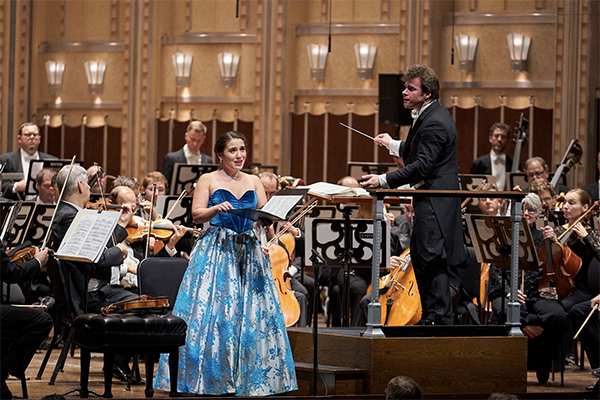by Daniel Hathaway
INTERESTING READ:

Obsessed with the piece, the composer left three distinct versions of the symphony, and Hrůša, unable to decide which he preferred, chose to commit all three to disc. The article also reveals some interesting facts about the Bamberg orchestra, which Hrusa regards as the “flagship” of its small Bavarian City, where one in ten of its residents holds season tickets for its concerts. (Cleveland Orchestra principal cello Mark Kosower was solo cellist in Bamberg before his translation to Ohio.) Read the article here.
TODAY’S ALMANAC:
British composer Gustav Holst was born on September 21, 1874 in Cheltenham. Prolific and inspired by such diverse influences as Hindu music and English folksong, he left a large catalogue of music, much of which has been overshadowed by works like The Planets that made his name famous.
Holst’s daughter Imogen recalls her father in a charming documentary, and this restored 1926 recording of The Planets with the composer conducting has been described as revelatory and surprising.
Explore some of Holst’s less familiar choral works with these recordings: His Two Psalms, sung by the Estudio Coral de Buenos Aires in 1981, his Hymn to Jesus, based on the Apocryphal Gospels and performed by the University of North Texas Symphony Orchestra and Grand Chorus in 2012, and — continuing the metaphor of sacred dance — his folklike but sophisticated setting of the old Cornysh carol, This have I done for my true love, performed by the choir of Christ Church Cathedral, Oxford with scrolling score.
Or take a taste of his settings of hymns from the Rig Veda, with the Hymn of the Travellers, sung by the children’s choir and youth ensemble of the Maîtrise Notre-Dame de Paris with harp accompaniment.
And English art song composer Roger Quilter took leave of this life on September 21, 1953, leaving a legacy of over a hundred songs, many setting texts by Shakespere, that still figure importantly in vocal recitals. His Three Shakespeare Songs of 1905 are probably at the top of the list, and composer Peter Warlock wrote that O Mistress Mine is “one of the very few things that very simply send me into ecstasies every time I play it.” This performance of the set is by baritone Zak Kariithi and pianist Lemuel Grave.



